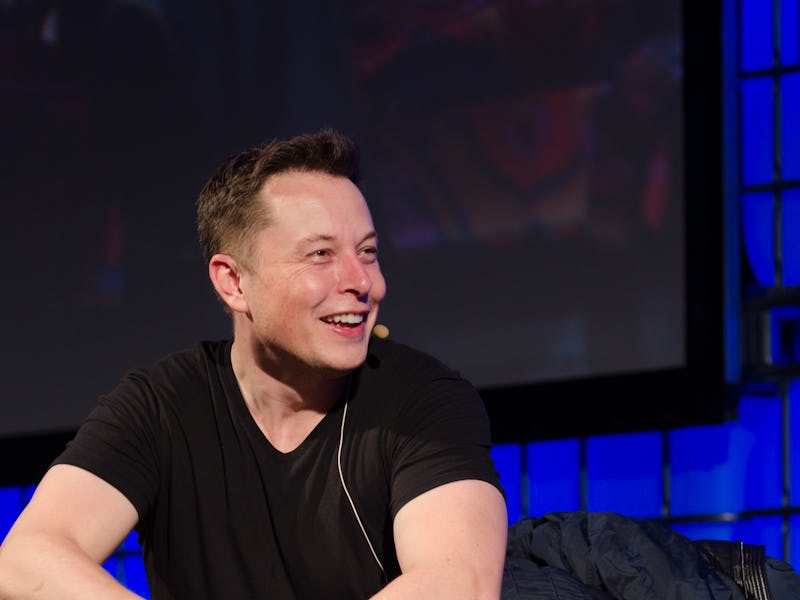Elon Musk Reveals the One Question He Would Ask a Human-Level A.I.
There's one question that he cannot answer.

Elon Musk would use his first opportunity to ask a question to a super-smart artificial intelligence to ask about simulation theory, the entrepreneur revealed in an interview last week. Musk considered the issue during a podcast with MIT researcher Lex Fridman, where a conversation around autonomous driving and cars gradually turned to physics, love, and the question of whether the universe is an elaborate simulation.
“So when maybe you, or maybe somebody else, creates an AGI [artificial general intelligence] system, and you get to ask her one question, what would that question be?” Fridman asked toward the end of the 33-minute podcast.
Musk paused for 14 seconds, his eyes facing down and darting around in what appeared to be a deep focus.
“What’s outside the simulation?” he eventually responded.
Musk has discussed his idea before that humanity is living inside a simulation, stating at a 2016 conference that the odds that our reality is the base level is about “one in billions.” His argument focuses on how video games have advanced in the space of a few years to offer photorealistic simulations of fictional worlds, so it’s not a big stretch to imagine a simulation capable of producing something like our reality.
“Even if that rate of advancement drops by a thousand from what it is right now: then you just say, ‘Okay, let’s imagine it’s 10,000 years in the future,’ which is nothing in the evolutionary scale,” Musk said at the Recode conference. “So, given that we’re clearly on a trajectory to have games that are indistinguishable from reality, and those games could be played on any set-top box or on a PC or whatever, and there would probably be billions of such computers or set-top boxes — it would seem to follow that the odds that we’re in base reality is one in billions.”
Musk’s response was the culmination of an interview that initially focused on how autonomous cars will prove five to 10 times more valuable than their predecessors, and how the neural network that takes data from the Tesla’s eight cameras and 12 ultrasonic sensors is improving exponentially to enable full hands-off driving. Eventually, the pair started discussing how these networks could precede artificial general intelligence, or human-level A.I..
“It’s going to be upon us very quickly, and then we need to figure out what shall we do, if we even have that choice,” Musk said. Musk previously founded Neuralink, a startup aimed at creating a brain-computer interface, with the goal of developing a symbiotic relationship between humans and machines. He has also called for legislators to regulate A.I. before it’s too late.
Musk noted that, if it’s physically impossible to detect the difference between simulation or reality, it may be impossible to test whether reality is a simulation.
“There may be ways to test whether it’s a simulation,” Musk said. “You could certainly imagine that a simulation could correct…once an entity found a way to detect the simulation, it could either pause, start a new simulation or do many other things, that corrects for that error.”
With some experts like Ben Goertzel predicting that artificial general intelligence could arrive in just 10 years’ time, Musk might not have to wait long to ask his question.